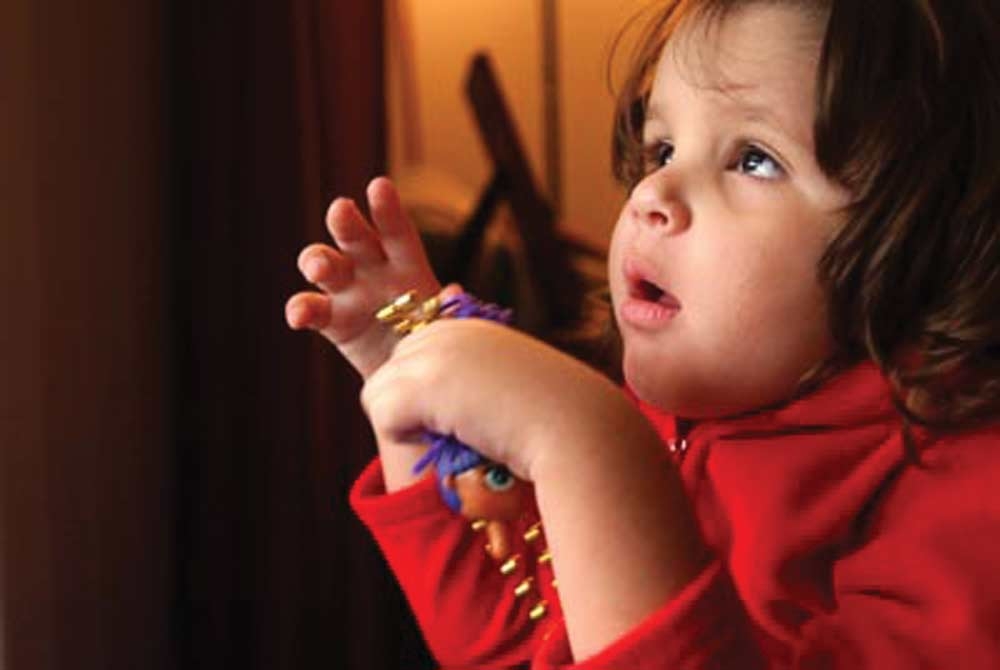
Being a mom of an autistic daughter, I wanted to shed some light on the cost of raising an autistic child as it something that is very close and very important to me. It’s a serious issue, and I want to bring awareness to those who don’t realize how autism truly affects the family on not just an emotional level, but on a financial level as well.
It is not uncommon to see autism in the headlines; usually exploring new treatments, therapies and trends. It should come as no surprise that treatment for autism is extremely expensive and not usually covered by health insurance, though that is changing. Costs differ from state to state for special needs children. One study coming from the Harvard School of Public Health states that the estimated medical and education costs can go as high as $72,000 yearly for children with severe autism. And the number doesn’t drop too much for those at the lower end of the spectrum, coming in at $67,000 per year.
With the economy as it is these days, there are many families that simply cannot afford the variety of treatments available . . . none of which are guaranteed to help. And it can be a difficult decision choosing between medical or alternate treatments or if they should focus on the education aspect.
My daughter had a wonderful teacher who stepped out of his role as teacher, came to us as a friend and told us that her current school system couldn’t offer her the education that she needed. We immediately sold our home and moved into a better school district for her benefit. We personally chose to invest in her education and opted for alternative treatments (paying for all treatments out-of-pocket) during her summer breaks to help her along. Happily I can report that she has progressed from moderate to mild in the autism spectrum.
Treatment vs. Education
Many parents don’t believe that the schools offer proper education, which these children need and deserve . . . even though the 1990 Individuals with Disabilities Education Act requires all school districts to provide a “free and appropriate” education for children with disabilities, including autism. Some parents often feel that the schools are just babysitters and not truly teaching or working with their children, which in turn leads them to alternative education and additional costs – if their budget can handle it.
There is a fine line between the options of treatments and education. This fine line opens a door for debate between insurance and school systems, which leaves both refusing any responsibility. Fortunately, insurance companies and their views have been changing. The advocacy group Autism Speaks has been pushing states to approve laws mandating insurance companies begin to cover treatment. This is vitally important as new findings are showing that healthcare costs for autism are rising faster than any other mental disorder. As the number of children with autism rises, so do the expenses. Autism-related healthcare costs increased more than 30% from 2000 to 2003. The number of autistic children also increased 30% during that same time period.
Direct and Indirect Costs
Raising an autistic person during their lifetime could be as high $3.2 million, which is a staggering number to think about. It’s difficult to imagine many families being able to foot that bill. Caring for all people with autism over their lifetimes comes in at $35 billion per year.
And these don’t include the indirect costs, like the value of lost productivity from an autistic person (meaning the difference in possible income from someone with autism versus someone without). Also, which rarely gets mentioned, is the loss of productivity coming from an autistic’s parents; like the loss of income due to reduced work hours or not having the option to work at all. It’s estimated that these indirect costs for parents and their autistic children range from $39,000 to almost $130,000 yearly.
What the Future Holds . . .
Hopefully, with the legislation for health insurance being approved and more states and insurance companies joining in, more families can afford the necessary treatments and therapies for their loved ones with autism. Early intervention is crucial to their growth, and if they can get early treatments it will make their transition into school so much more beneficial to their education and future life.
My daughter was two years old when she was diagnosed with autism. I’m very thankful that we learned of it at such an early age and were able to put our energy into giving her the best options possible. With that being said, that early attention to her needs has definitely paid off. Will she ever be independent? I don’t know. All I know is that she is self-sufficient and very happy; and that makes me happy too. I wish the same happiness for all parents and families living with autism.

A new study suggests that a widely used sugar substitute found in diet sodas, chewing gum, and low-sugar yogurt may elevate insulin levels. This could increase the long-term risk of heart disease. “Artificial sweeteners have infiltrated nearly all types of food, making it crucial to understand their long-term health effects,” said Yihai Cao, senior author […]

Diet Coke has long been a fan-favorite among soda lovers who want a fizzy, guilt-free alternative to traditional soft drinks. While its zero-calorie, zero-sugar label makes it seem like a healthier option, the reality is far more concerning. Despite its undeniable popularity, Diet Coke’s nutritional profile has raised red flags among health experts for years. […]

New study shows that embracing an anti-inflammatory, plant-forward diet can support cognitive function and help reduce the risk of dementia. What You Eat Shapes Your Brain The food you eat doesn’t just impact your body—it also affects your brain. Research suggests that eating an anti-inflammatory, plant-based diet can help improve memory, focus, and overall brain […]